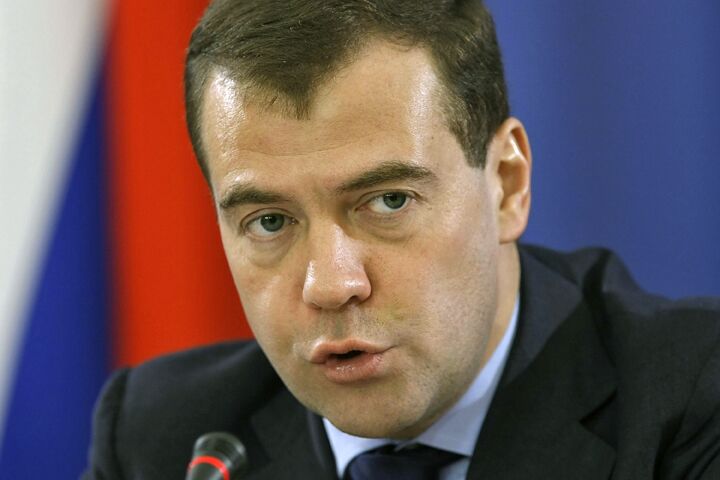
Russia Woos Ukraine’s People
Russian President Dmitry Medvedev roasted Ukrainian President Viktor Yushchenko last week, telling him he is the cause of sour relations between their two countries. But Medvedev kept his attacks narrowly focused on the Ukrainian leadership while embracing the Ukrainian people as a whole.
Medvedev wrote a letter to Yushchenko, released by the Kremlin August 11, in which he lambasted the Ukrainian leader for pursuing anti-Russia policies, including selling arms to Georgia, pursuing nato membership and giving the “gathering impression that Kiev is consistently seeking a rupture in forming economic ties with Russia, especially in the energy sector.” He announced that he would postpone sending a new ambassador to Ukraine.
Medvedev followed up his letter with a video blog in which he declared, “The strain in relations between our two countries has indeed hit unprecedented levels.” Throughout the video, though, Medvedev pinned the blame for the struggling relationship on Ukraine’s leaders, while praising the strong ties that existed between the Ukrainian and Russian people.
“No matter what complexes or delusions motivate the actions of individual Ukrainian officials, we will always value our fraternal ties with the Ukrainian people and will strive to strengthen our humanitarian operations,” said Medvedev.
“I have on many occasions stated that Russia seeks to be a predictable, strong and comfortable partner for its neighbors, all the more so for a country with which we share common historical and cultural roots,” he said in the video. “We are more than just neighbors, our ties are those of brothers.”
Medvedev’s message is clear. He is telling the Ukrainians that they just need to change their leaders in the election coming up on January 17 and they can have a strong partnership with Russia again.
It is a message that may be well received by many in Ukraine. Despite taking over the presidency in 2004 in a popular uprising known as the Orange Revolution, Yushchenko’s popularity has now fallen to just 4 percent, according to the Moscow Times. The pro-Russian Viktor Yanukovych leads the polls with 24 percent.
The largest Russian community outside Russia lives in Ukraine. It houses Russia’s Black Sea fleet and some of Russia’s nuclear warheads. It has rich farmland and sits in a strategic location both for projecting military power and for transportation between Russia and Europe.
“In short, Russia would be economically crippled and nearly cut off from the rest of Europe without Ukraine,” writes U.S. think tank Stratfor. “This has made Ukraine the top state for Russia to keep in its orbit. But its importance has forced Russia to take a more subtle approach than it did with Georgia. Moscow is pursuing a long-term set of assimilation programs inside Ukraine to ensure that the country is more firmly tied to Russia’s future. This was highlighted in Medvedev’s video statement, in which he said the ties between Russia and Ukraine were those of brothers” (August 12).
The Kremlin is working to create a pro-Russian Ukraine from the ground up. As Stratfor said, “Russia is taking a much deeper and more thorough approach [than simply a leadership change] to ensuring Ukraine remains a part of its sphere of influence.”
Patriarch of the Russian Orthodox Church, Kirill i, visited Ukraine from July 27 to August 5. During his visit, he emphasized unity between the Ukrainian and Russian Orthodox Churches, and the common heritage of their people. He even offered to become a Ukrainian citizen.
Russia is also using the entertainment business to get its message across. This year is the 200th anniversary of the birth of Ukrainian author Nikolai Gogol. To celebrate, the Russian government helped finance a $20 million film adaptation of a 15th-century adventure novel, Taras Bulba. The film shows heroic Ukrainian Cossacks fighting for Russia against a Western enemy. Its director, Vladimir V. Bortko, aimed to show “there is no separate Ukraine,” and “the Russian people are one,” according to remarks he made in an interview. Gogol is an author revered in both Russia and Ukraine.
Russia is trying to use its historical links to pry Ukraine away from Europe and America. Opinion polls suggest that the January 2010 elections will markedly shift Ukraine toward Russia.
If Russia regains control over Ukraine, this will increase its power, making it bolder, and Europe more fearful. Watch for Russia’s rise in power to continue, and watch Europe’s reaction to it.
